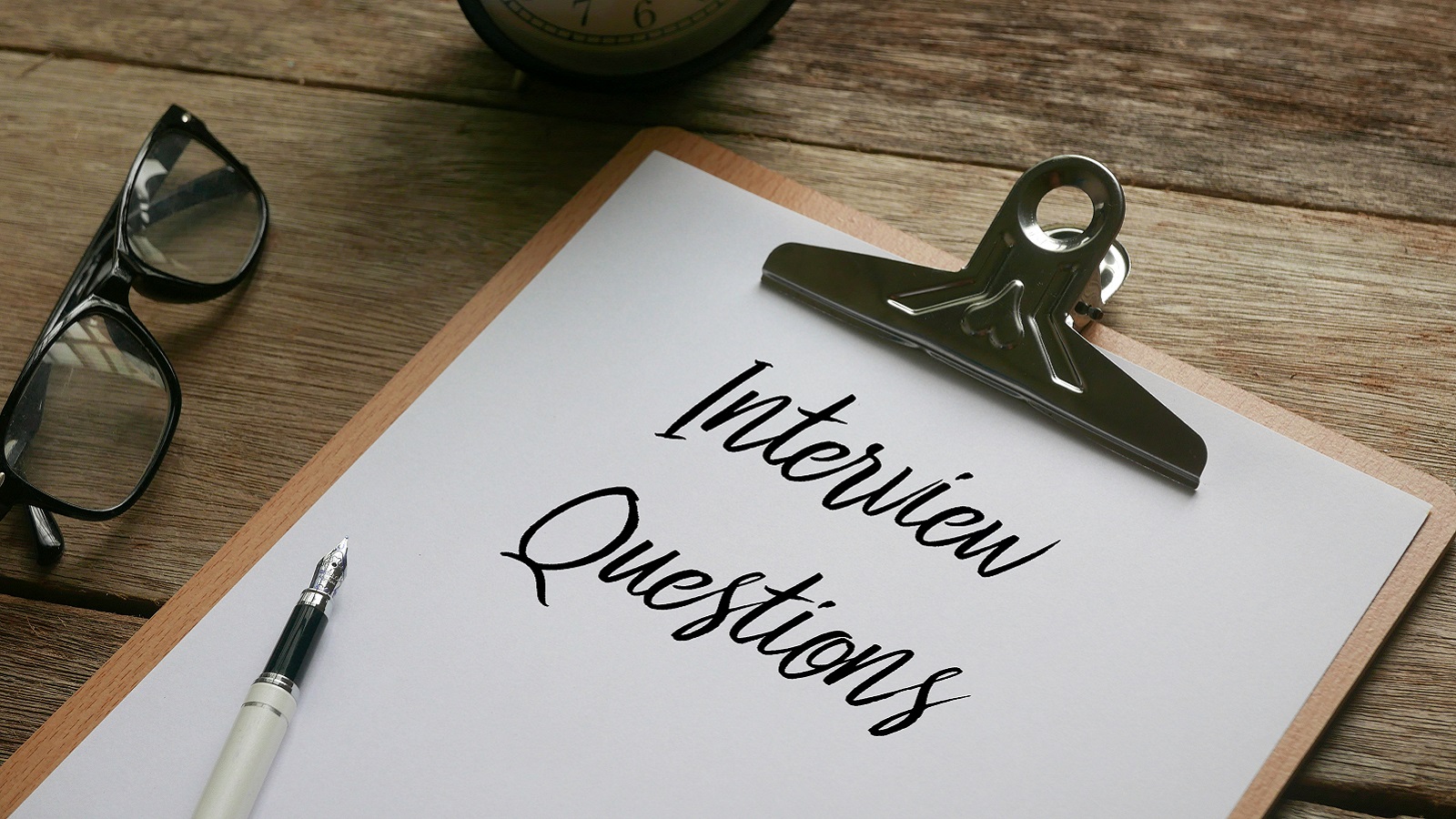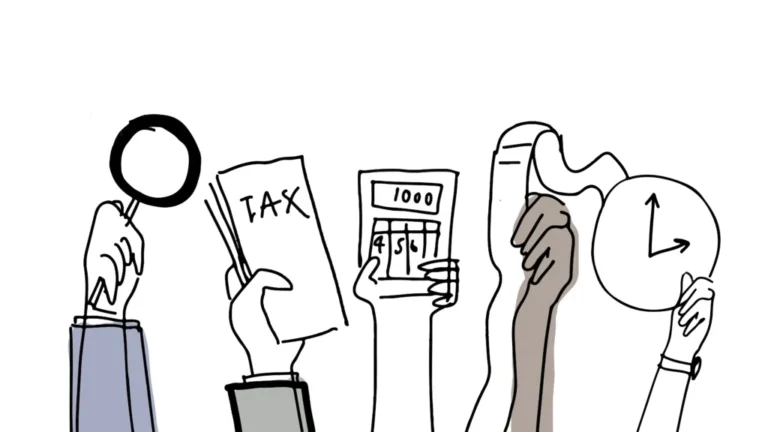Everyone is nervous during job interviews, and it’s perfectly normal. If you simply allow yourself to feel nervous, you’ll do much better. Remember also that it’s difficult for the interviewer as well.
In general, be upbeat and positive. Steer clear of negativity.
It’s a smart move to practice your answers and time yourself. Never talk for more than 2 minutes straight.
Don’t try to memorize answers word for word. Use the answers shown here as a guide only, and don’t be afraid to include your own thoughts and words. To help you remember key concepts, jot down and review a few keywords for each answer. Rehearse your answers frequently, and they will come to you naturally in interviews.
Remember, it’s not always about providing the right information but about presenting it in a way that demonstrates you are the best candidate.
Now get started with our list of common job interview questions, along with answering techniques to secure the position you desire.
- Tell me about yourself
This question bags the top position on the hiring managers’ lists worldwide. However, answering this question requires you to be prepared to talk about yourself and give an insight into how you reached where you are.
Common Trap: About 80% of all interviews begin with this “innocent” question. Many candidates, unprepared for the question, skewer themselves by rambling, recapping their life stories, and delving into ancient work history or personal matters.
How to Answer: Interviewers like to hear candidates’ stories. So ensure your story is intriguing— beginning, middle, and end. You can also discuss an incident that arouses your interest in your profession. Additionally, discuss how your education, skills, and knowledge make you an excellent fit for the role. And do not forget to mention a complex or exciting project you have worked on which made you learn and grow.
Remember that the key to all successful interviewing is to match your qualifications to what the interviewer is looking for. So, before you answer this or any question, it’s imperative that you try to uncover your interviewer’s greatest need, want, problem, or goal.
After uncovering what the employer is looking for, describe why the needs of this job bear striking parallels to tasks you’ve succeeded at before. Be sure to illustrate with specific examples of your responsibilities and especially your achievements, all of which are geared to present yourself as a perfect match for the needs he has just described.
Learn more: How to Answer “Tell Me About Yourself” In An Interview
- How did you learn about this position?
Common Trap: Providing a vague or unimpressive response. Simply stating that you found the job online or through a friend might not leave a strong impression on the interviewer. It can make you come across as passive or disinterested in the role.
How to Answer: Employers want to know the source from where you heard about the position. Mention it clearly. To impress the interviewer, your response should convey how you discovered the position and highlight your genuine interest and alignment with the company.
If someone has recommended you for the position, make sure to mention their name, and don’t assure that the employer already knows about the referral. If you got to know about the role by yourself, explain the source and the reason that made you apply.
In either of the cases, mention why you think you are the best candidate for the position. Here’s how you can frame your answer:
“I learned about this position through diligent research and my strong interest in [Company Name]. As someone who has admired your company’s commitment to [mention a specific aspect like innovation, sustainability, or customer-centricity], I actively follow your website, blog, and social media channels. When I saw the job opening posted on your careers page, I was immediately drawn to it because it perfectly aligns with my career goals and values.”
- Why do you want this job? OR Why should I hire you?
Common Trap: Believe it or not, this is a killer question because so many candidates are unprepared for it. If you stammer or adlib, you’ve blown it.
How to Answer: Again, companies want to hire candidates who are passionate about their work and have the zeal to contribute to the organisation’s success. Identify the key factors that help you relate to the job and make you fit for it.
Whether your interviewer asks you this question explicitly or not, this is the most important question of your interview because he must answer this question favorably in his own mind before you will be hired. So help him out! Walk through each of the position’s requirements as you understand them, and follow each with a reason why you meet that requirement so well.
For instance, you applied for the role of customer care executive. Upon being asked, you can mention why you would like to take the role. One such key factor can be your inclination toward helping customers solve their problems and mentioning why you wish to be a part of the respective company. You can refer to the template below to design your answer:
“I’m enthusiastic about joining [Company Name] because my [X years] of experience in [relevant field] perfectly aligns with this role’s requirements, including [mention specific skills and achievements]. What excites me most is [Company Name]’s commitment to [company value/mission], reflecting my own values. I’m eager to contribute to [relevant project] and believe my collaborative and innovative approach matches [Company Name]’s culture. In my previous role at [Previous Company], I [mention teamwork or innovation]. This position represents a long-term commitment, and I’m confident my skills will make an immediate impact. Is there anything specific you’re looking for in the ideal candidate?”
- What type of work environment do you prefer?
OR Describe your ideal company, location, and job.
Common Trap: This is often asked by an experienced interviewer who thinks you may be overqualified but knows better than to show his hand by posing his objection directly. So he’ll use this question instead, which often gets a candidate to reveal that he or she is looking for something other than the position at hand.
How to Answer: Do your homework before the interview and research the company’s culture. Next, pick up the keywords from their website and check whether they align with your objectives. Then, during the job interview, use those keywords to show your interest in working with the organisation.
In your ideal answer, describe what this company is offering, being sure to make your answer believable with specific reasons, stating with sincerity why each quality represented by this opportunity is attractive to you.
If the employer tells you something you had not discovered while researching, describe an experience that will help you adapt. Simply put, your objective is to match your ethics & goals with the company culture, mission & vision.
- Tell me about a time you made a mistake. How did you handle it?
Common Trap: In your response, the interviewer wants to assess how you acknowledge the mistake, take responsibility, discuss your actions to address it, and highlight the valuable lessons you gained from the experience. Giving a response that fails to address the mistake adequately or focuses too much on it without emphasizing the resolution or lessons learned. also, Failing to explain how you resolved the mistake or what steps you took to prevent it from happening again can leave the answer incomplete.
How to Answer: The world is imperfect, and no present-day employer expects its employees to be perfect. The trick to answering this question is, to be honest and show a bit of self-awareness. For example, mention a time when you committed a mistake and the lesson you learned from it. However, refrain from showing your past experience as your weakness. Instead, showcase it as your strength and convince them intelligently that it didn’t hinder your ability to work.
Demonstrate how resilient you are and how you cope with situations single-handedly when the need arises. You can use the sample below as a guide to prepare your answer:
“Once, I overlooked a critical detail in a project deadline, causing a delay. I immediately took responsibility, informed my team, and apologized to the client. To rectify this, I organized a quick team meeting, redistributed tasks, and worked extra hours to expedite the project. I also implemented a checklist system to prevent such oversights in the future. This experience taught me the importance of meticulous planning and communication. It demonstrated my accountability and ability to turn mistakes into learning opportunities, ultimately strengthening our team’s reliability.”
Conclusion
Of all types of learning, self-learning is the best. To nail a job interview, you must ensure your answers and attitude pass the right message to the interviewer. Your impression on the interviewer can often outweigh the credentials mentioned on your resume. Therefore, ensure your poise, social skills, and ability to communicate sync with the answers you provide.
Remember, interviews are not just about showcasing your skills and experiences; they’re also an opportunity to demonstrate your professionalism, problem-solving abilities, and cultural fit. Approach each question with confidence, backed by your well-practiced answers.
Lastly, don’t underestimate the power of self-belief. You have unique talents and qualities that set you apart. Approach interviews with authenticity and enthusiasm, and you’ll be well on your way to securing that dream job – you’ve got this!”
Tip: At the end of the interview, when the hiring manager asks,” Do you have any questions for us?” Do not say,” No. I have no questions.”
Have some questions prepared in advance to ask the employer. Learn how to bring up apt questions that will impress the hiring manager.








